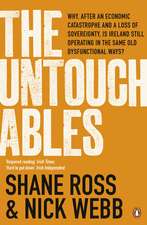The European Council: The European Union Series
Autor Wolfgang Wesselsen Limba Engleză Paperback – 29 sep 2015
| Toate formatele și edițiile | Preț | Express |
|---|---|---|
| Paperback (1) | 270.67 lei 6-8 săpt. | |
| Bloomsbury Publishing – 29 sep 2015 | 270.67 lei 6-8 săpt. | |
| Hardback (1) | 831.43 lei 6-8 săpt. | |
| Bloomsbury Publishing – 29 sep 2015 | 831.43 lei 6-8 săpt. |
Din seria The European Union Series
- 10%
 Preț: 266.43 lei
Preț: 266.43 lei - 12%
 Preț: 231.01 lei
Preț: 231.01 lei - 18%
 Preț: 256.59 lei
Preț: 256.59 lei -
 Preț: 265.76 lei
Preț: 265.76 lei - 30%
 Preț: 774.12 lei
Preț: 774.12 lei -
 Preț: 263.72 lei
Preț: 263.72 lei - 30%
 Preț: 776.58 lei
Preț: 776.58 lei - 12%
 Preț: 226.42 lei
Preț: 226.42 lei - 18%
 Preț: 257.50 lei
Preț: 257.50 lei -
 Preț: 265.47 lei
Preț: 265.47 lei - 17%
 Preț: 256.89 lei
Preț: 256.89 lei - 6%
 Preț: 239.59 lei
Preț: 239.59 lei - 14%
 Preț: 198.22 lei
Preț: 198.22 lei - 17%
 Preț: 240.98 lei
Preț: 240.98 lei - 12%
 Preț: 238.31 lei
Preț: 238.31 lei - 13%
 Preț: 232.17 lei
Preț: 232.17 lei - 13%
 Preț: 251.28 lei
Preț: 251.28 lei - 31%
 Preț: 772.74 lei
Preț: 772.74 lei -
 Preț: 268.68 lei
Preț: 268.68 lei -
 Preț: 258.89 lei
Preț: 258.89 lei - 18%
 Preț: 270.20 lei
Preț: 270.20 lei - 14%
 Preț: 832.17 lei
Preț: 832.17 lei -
 Preț: 265.18 lei
Preț: 265.18 lei - 18%
 Preț: 271.40 lei
Preț: 271.40 lei - 22%
 Preț: 273.24 lei
Preț: 273.24 lei -
 Preț: 271.58 lei
Preț: 271.58 lei -
 Preț: 269.94 lei
Preț: 269.94 lei - 14%
 Preț: 771.75 lei
Preț: 771.75 lei -
 Preț: 320.93 lei
Preț: 320.93 lei - 21%
 Preț: 280.55 lei
Preț: 280.55 lei -
 Preț: 263.92 lei
Preț: 263.92 lei - 18%
 Preț: 271.14 lei
Preț: 271.14 lei - 16%
 Preț: 259.19 lei
Preț: 259.19 lei -
 Preț: 270.49 lei
Preț: 270.49 lei - 18%
 Preț: 269.76 lei
Preț: 269.76 lei - 14%
 Preț: 775.19 lei
Preț: 775.19 lei - 22%
 Preț: 269.76 lei
Preț: 269.76 lei - 14%
 Preț: 270.20 lei
Preț: 270.20 lei
Preț: 270.67 lei
Preț vechi: 329.31 lei
-18% Nou
Puncte Express: 406
Preț estimativ în valută:
51.80€ • 53.88$ • 42.76£
51.80€ • 53.88$ • 42.76£
Carte tipărită la comandă
Livrare economică 15-29 aprilie
Preluare comenzi: 021 569.72.76
Specificații
ISBN-13: 9780333587478
ISBN-10: 0333587472
Pagini: 312
Ilustrații: 4 figures, 10 b/w tables
Dimensiuni: 155 x 235 x 22 mm
Greutate: 0.36 kg
Ediția:1st ed. 2015
Editura: Bloomsbury Publishing
Colecția Red Globe Press
Seria The European Union Series
Locul publicării:London, United Kingdom
ISBN-10: 0333587472
Pagini: 312
Ilustrații: 4 figures, 10 b/w tables
Dimensiuni: 155 x 235 x 22 mm
Greutate: 0.36 kg
Ediția:1st ed. 2015
Editura: Bloomsbury Publishing
Colecția Red Globe Press
Seria The European Union Series
Locul publicării:London, United Kingdom
Caracteristici
Fully up-to-date in covering the nature of the European Council following the implementation of the Lisbon Treaty
Notă biografică
Wolfgang Wessels is Jean Monnet Professor of Political Science, University of Cologne, Germany. He is also chairman of the executive board of the Trans European Political Studies Association (TEPSA), Belgium, and of the Institute for European Politics (IEP), Germany. Wolfgang has published widely in leading journals and edited volumes and is presently the coordinator of several academic networks: 'PADEMIA - Erasmus Academic Network on Parliamentary Democracy in Europe', 'EXACT - Marie Curie Initial Training Network', 'THESEUS' and 'Observatory of Parliaments after the Lisbon Treaty'.
Cuprins
PART I: THE EUROPEAN COUNCIL: OVERVIEW AND HISTORY 1. Introduction: The Many Faces of the European Council 2. Multiple Approaches for Understanding a Contested Institution: Three Models 3. Pre-History: the Birth of Institutionalised Summitry 4. History: Generations of Leaders and the Institutional Trajectory PART II: THE ROLE OF THE EUROPEAN COUNCIL WITHIN THE EU ARCHITECTURE 5. Political and Procedural Leadership: General Functions and Specific Powers 6. Towards a New Institutional Balance? Trends in Inter-Institutional Relations PART III: INSIDE THE EUROPEAN COUNCIL: THE DYNAMICS OF DECISION MAKING 7. The Presidency: Charismatic Master or Facilitating Manager? 8. Rules for Organisation: the Search for an Optimal Institutional Arrangement 9. Decision-Making: The Ways to Consensus Formation 10. Decision-Making: The Power Dimension PART IV: ACTIVITIES, AGREEMENTS AND ACTS 11. Deepening: The Constitutional Architect 12. Widening: The Master of Enlargement 13. Economic Governance: Towards a 'gouvernement économique'? 14. External Action: In Search of a Coherent and Effective Global Role 15. The Area of Freedom, Security and Justice: Pre-Constitutional and Pre-Legislative Functions PART V: CONCLUSIONS AND PERSPECTIVES: A KEY INSTITUTION'S RISE AND DECLINE? 16. The European Council: Looking Back to Look Forward.
Descriere
This systematic assessment of the -often opaque- European Council looks at its characteristics, leaders and output as well as its impact on EU supranational and intergovernmental dynamics. Taking account of historical and contemporary developments up to and beyond the Lisbon Treaty, it encourages in-depth understanding of this key institution.









